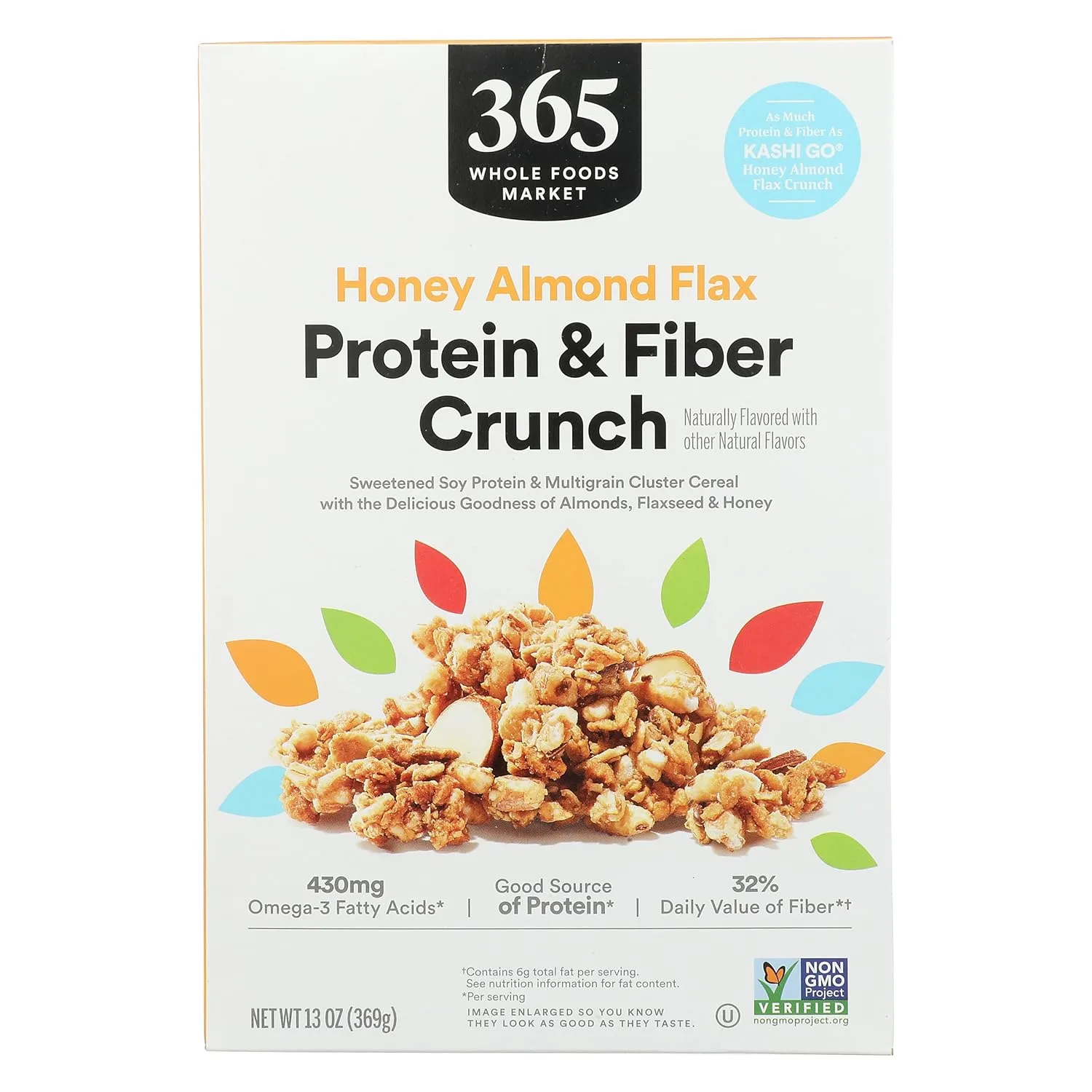For newborn tummies
0–6 month old babies should generally have only breast milk or infant formula. Please talk to your pediatrician before giving anything else.
Take care of you and your baby ❤️
Honey Almond Flax Protein & Fiber Crunch
food & drinks • For 0-6 month old infants • Consumable 🍝
Product Images
Product Photo

Tap to enlarge
Ingredient List

Tap to enlarge
Is this safe for 0-6 month old newborns to eat Honey Almond Flax Protein & Fiber Crunch?
Check for Different Age (6 available)
Ingredients Analysis (19 found)




















Common Questions About Honey Almond Flax Protein & Fiber Crunch
Is this newborn-safe? Honey Almond Flax Protein & Fiber Crunch
Honey Almond Flax Protein & Fiber Crunch is not recommended for 0-6 month old babies due to potentially harmful ingredients.
What ingredients should I watch out for?
We analyzed 19 ingredients in Honey Almond Flax Protein & Fiber Crunch. 2 avoid, 9 concerning, 5 caution. Check the detailed analysis above for specific concerns.
When can newborns start eating food & drinks?
The appropriate age depends on the specific ingredients. This analysis is for 0-6 month old babies. Use the age selector above to check other ages.
⚠️ Important Disclaimers
Product Recognition: Product names are identified programatically and may be incorrect. Always verify product identity yourself.
Safety Analysis: Evaluations are for research only - consult pediatricians for medical decisions. Do not rely solely on this analysis.
No Guarantees: Results may be incomplete or inaccurate. Do not rely solely on this analysis.